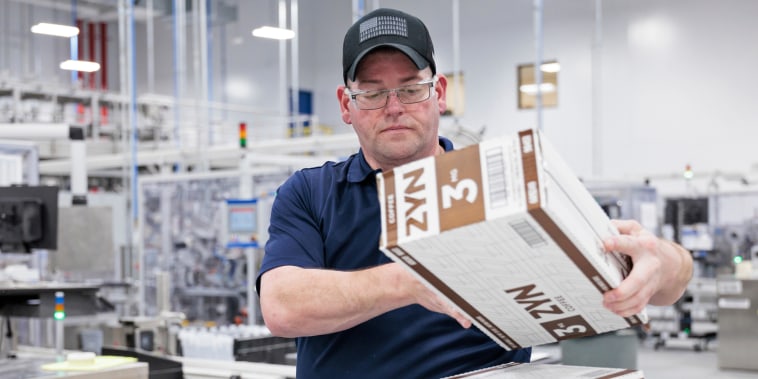Zyn users, rejoice: Production is about to ramp up in the U.S.
Philip Morris International (PMI), Zyn’s parent company, announced Tuesday it would invest $600 million to build a new production facility in Aurora, Colorado, dedicated to manufacturing the popular nicotine pouches.
The move comes as Zyn has been subject to nationwide shortages as a result of its runaway success.
“PMI and its U.S. affiliates are accelerating their mission to move adults who smoke away from cigarettes in the U.S. by investing in new U.S. manufacturing capacity to meet the increasing demand for nicotine options that are scientifically substantiated as better alternatives,” said PMI Americas President and U.S. CEO Stacey Kennedy in a statement.
“We believe Colorado is likeminded in its commitment to innovation, economic opportunity and public health, and we’re eager to work with the state and its talented workforce as we expand our U.S. manufacturing presence.”
The facility will be constructed over the course of two years, creating 500 direct jobs that pay an average annual salary of $90,000, with ongoing annual economic impact of $550 million and an additional 1,000 indirect jobs. PMI also estimates 1,000 construction jobs will be created as the factory is stood up.
Tuesday’s announcement comes on top of a previously stated plan to increase Zyn production at an existing facility in Kentucky to provide more immediate relief to address the shortage.
Amid its widespread adoption, Zyn has also begun to face questions about its safety. PMI has said its products have been scientifically supported as better alternatives to traditional cigarette use. The FDA’s official stance is that nicotine is addictive and can lead to continued use of tobacco, and that any tobacco or tobacco-alternative products like Zyn are illegal to sell to users under the age of 21.

